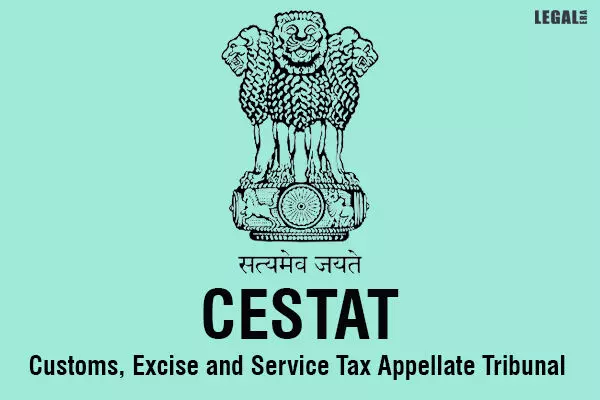- Home
- News
- Articles+
- Aerospace
- Artificial Intelligence
- Agriculture
- Alternate Dispute Resolution
- Arbitration & Mediation
- Banking and Finance
- Bankruptcy
- Book Review
- Bribery & Corruption
- Commercial Litigation
- Competition Law
- Conference Reports
- Consumer Products
- Contract
- Corporate Governance
- Corporate Law
- Covid-19
- Cryptocurrency
- Cybersecurity
- Data Protection
- Defence
- Digital Economy
- E-commerce
- Employment Law
- Energy and Natural Resources
- Entertainment and Sports Law
- Environmental Law
- Environmental, Social, and Governance
- Foreign Direct Investment
- Food and Beverage
- Gaming
- Health Care
- IBC Diaries
- In Focus
- Inclusion & Diversity
- Insurance Law
- Intellectual Property
- International Law
- IP & Tech Era
- Know the Law
- Labour Laws
- Law & Policy and Regulation
- Litigation
- Litigation Funding
- Manufacturing
- Mergers & Acquisitions
- NFTs
- Privacy
- Private Equity
- Project Finance
- Real Estate
- Risk and Compliance
- Student Corner
- Take On Board
- Tax
- Technology Media and Telecom
- Tributes
- Viewpoint
- Zoom In
- Law Firms
- In-House
- Rankings
- E-Magazine
- Legal Era TV
- Events
- Middle East
- Africa
- News
- Articles
- Aerospace
- Artificial Intelligence
- Agriculture
- Alternate Dispute Resolution
- Arbitration & Mediation
- Banking and Finance
- Bankruptcy
- Book Review
- Bribery & Corruption
- Commercial Litigation
- Competition Law
- Conference Reports
- Consumer Products
- Contract
- Corporate Governance
- Corporate Law
- Covid-19
- Cryptocurrency
- Cybersecurity
- Data Protection
- Defence
- Digital Economy
- E-commerce
- Employment Law
- Energy and Natural Resources
- Entertainment and Sports Law
- Environmental Law
- Environmental, Social, and Governance
- Foreign Direct Investment
- Food and Beverage
- Gaming
- Health Care
- IBC Diaries
- In Focus
- Inclusion & Diversity
- Insurance Law
- Intellectual Property
- International Law
- IP & Tech Era
- Know the Law
- Labour Laws
- Law & Policy and Regulation
- Litigation
- Litigation Funding
- Manufacturing
- Mergers & Acquisitions
- NFTs
- Privacy
- Private Equity
- Project Finance
- Real Estate
- Risk and Compliance
- Student Corner
- Take On Board
- Tax
- Technology Media and Telecom
- Tributes
- Viewpoint
- Zoom In
- Law Firms
- In-House
- Rankings
- E-Magazine
- Legal Era TV
- Events
- Middle East
- Africa
CESTAT: Same Authority Cannot Set Aside Its Own Approved Partial Refund Claim

CESTAT: Same Authority Cannot Set Aside Its Own Approved Partial Refund Claim
Stresses that based on the content of the notice, the rejection order was unjustified
The Chennai bench of the Customs, Excise and Service Tax Appellate Tribunal (CESTAT) has ruled in favor of the appellant, stating that when an authority has already issued an order upholding part of a refund claim, it cannot issue another order to set aside the entire refund claim.
The Coram of Sulekha Beevi CS (Judicial Member) and Vasa Seshagiri Rao (Technical Member) maintained that such an order was ab initio void and non-est.
The appellant, WS Industries (India) Ltd, had filed a refund claim amounting to Rs.8,42,001. But the Income Tax department issued a show-cause notice to it, rejecting the claim.
After the proceedings, the original authority approved a refund of Rs.4,21,790, while rejecting the balance amount. The appellant then appealed before the Commissioner of Income Tax (Appeals).
On 8 October 2013, CIT(A) affirmed the original authority's decision, upholding the sanction of Rs.4,21,790 refund, which was not challenged by the assessee.
Thus, the department filed an appeal against the original authority's sanction of Rs.4,21,790 refund. On 29 October 2013, CIT(A) reversed the original authority's decision and denied the entire refund claim.
The bench observed that initially, the notice suggested limiting the refund claim to an amount of Rs.4,27,062 rather than rejecting it entirely. Therefore, based on the content of the notice, the rejection order was not justified.
Stating that the challenged order must be set aside, the tribunal emphasized that the 8 October 2013 order of the CIT(A) had reached its finality. It ruled that the earlier decision of the original authority approving a portion of the refund claim should be reinstated.



